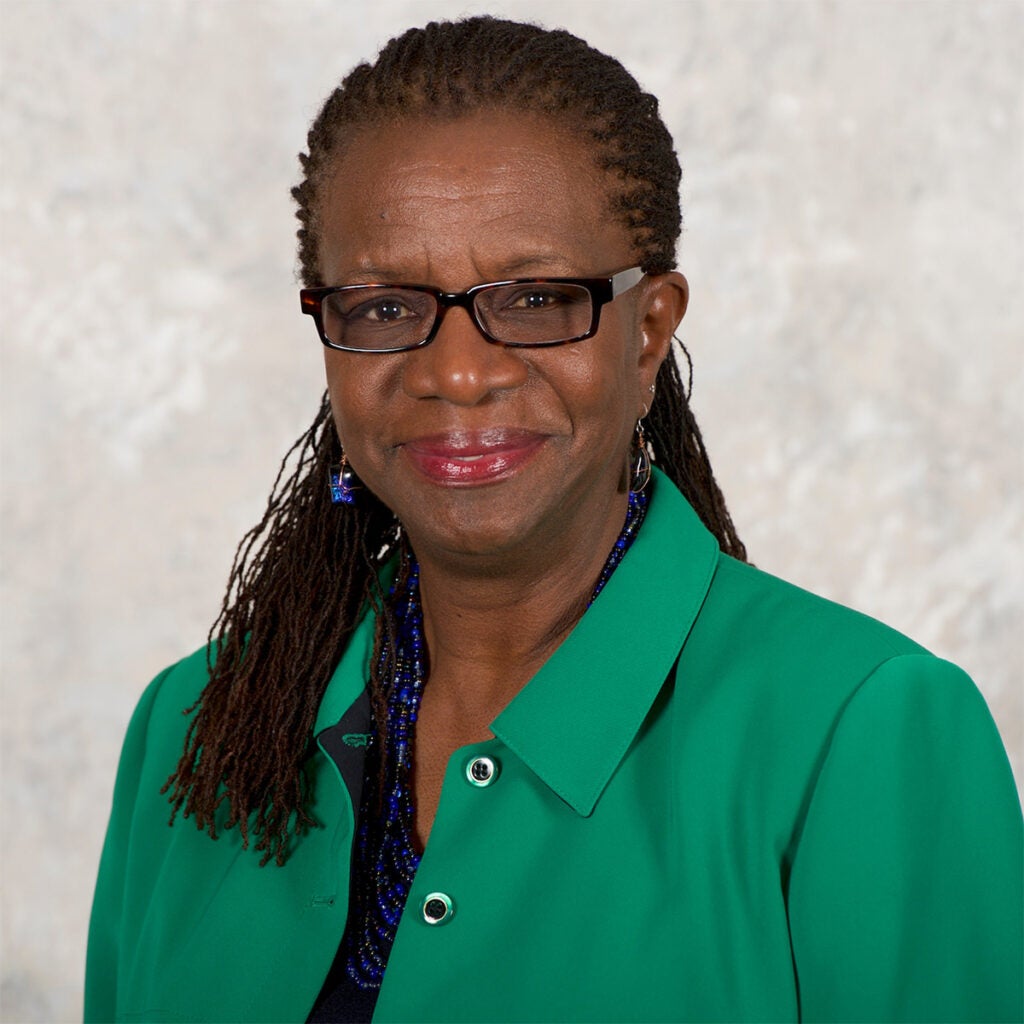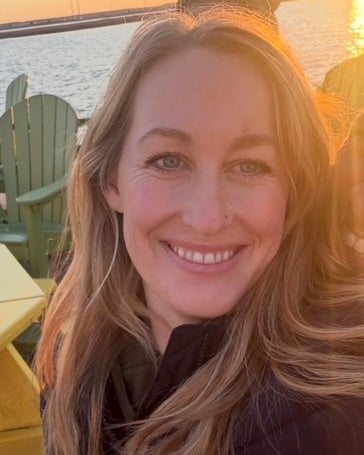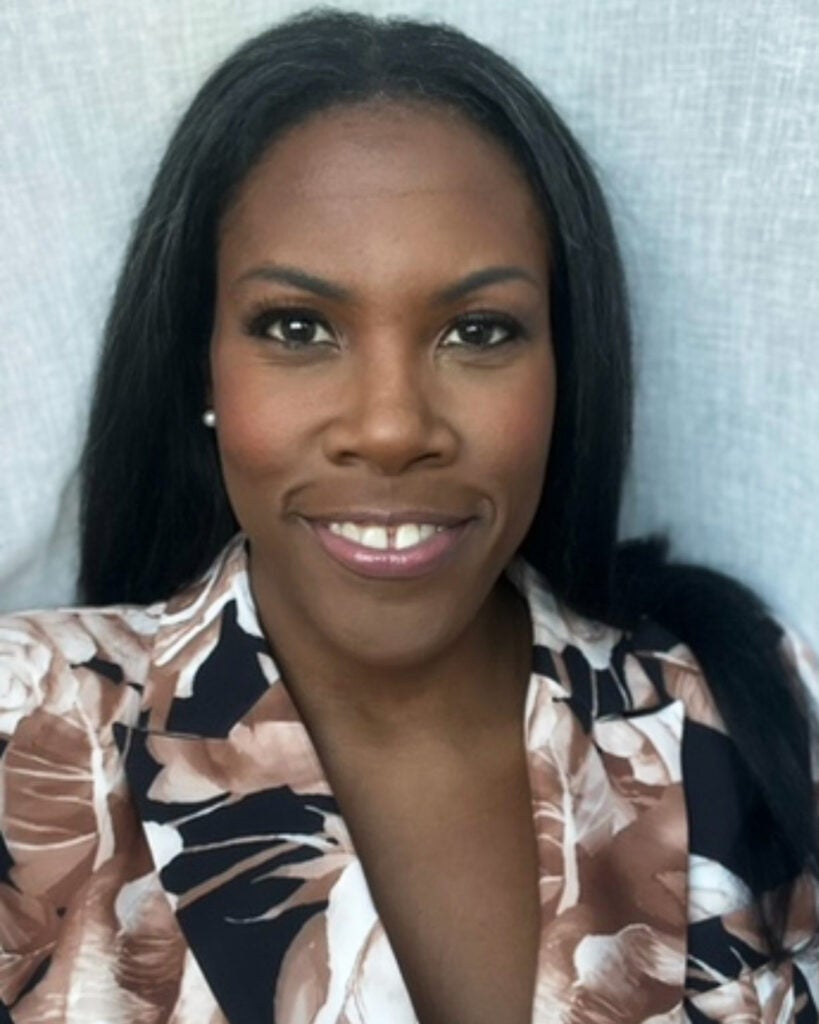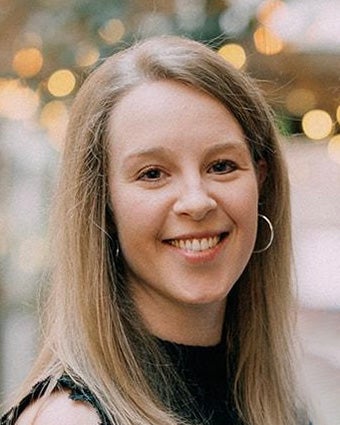
About the PhD in Nursing Program
Georgetown’s PhD in Nursing program, based at our Capitol campus in the heart of Washington, D.C., is designed to be a premier full-time doctoral program for individuals who want to be leaders for change by advancing the discipline and serving in academic, community health, health care, policy, global, and research settings.
PhD in Nursing Program Features
- Draws upon the interdisciplinary and intellectual richness of a campus community
- Develops leaders for change in nursing
- Focus in ethics and health equity
- Intellectual vibrancy with renowned faculty across multiple disciplines
- Globally known, values-based academic community
- Intellectual vibrancy across complimentary academic disciplines such as ethics, law, philosophy, medicine, and policy.
- Full-time, Capitol campus-based program with integrated experiences and classes at the Hilltop campus
PhD Program Admission Requirements
- Current RN license
- Master’s degree in nursing from an accredited program, BSN in nursing and a master’s degree in a health-related field, Doctor of Nursing Practice (DNP) degree. Other applicants will be considered on an individual basis related to qualifications
- >3.0 (on 4.0 scale) preferred GPA
- Graduate statistics class with a grade of B or better (within five years)
- Statement of purpose (addressing research interest)
- Curriculum vitae
- Three letters of recommendation (academic and professional)
- A writing sample (if available)
- Applicants who have attended institutions outside of the United States are required to upload their transcripts in the form of World Education Services (WES) ICAP evaluations or may utilize other credential evaluation services that are members of the National Association of Credential Evaluation Services (NACES).
- TOEFL (minimum of 80 and waived if applicant attended a master’s program in the U.S.)
A Message from the Program Director
The PhD in Nursing Program welcomes students who are curious, motivated and eager to engage in inquiry, knowledge development, original research, interdisciplinary networking, advocacy and multiple forms of data dissemination. The program builds on the strengths of the University, health equity and ethics, and centers on developing skills to unpack complex determinants of health that exist at the historical, individual, organizational, system and community levels. Our graduates, as nurse scientists, will lead in research, scholarship and novel interventions to positively impact existing health inequities.
— Edilma L. Yearwood, PhD, RN, PMHCNS-BC, FAAN
Program Virtual Information Sessions
We periodically offer virtual information sessions about the PhD in Nursing program features, curriculum and application procedure.
Please check back for future webinars.
PhD Program Admissions
The 2026 application cycle has closed. The Fall 2027 application cycle will open in July 2026.
Program Questions
Please direct questions about the PhD in Nursing program to PhDinNursing@georgetown.edu.
Meet Our Inaugural PhD Students
Program Leadership
Edilma L. Yearwood, PhD, PMHCNS-BC, FAAN
Program Director, PhD in Nursing Program
Program Faculty
Nursing PhD students work with faculty who have expertise in multidimensional and complementary areas, including ethics, health equity, health disparities, mental health, women’s health, cardiovascular science and physiology.
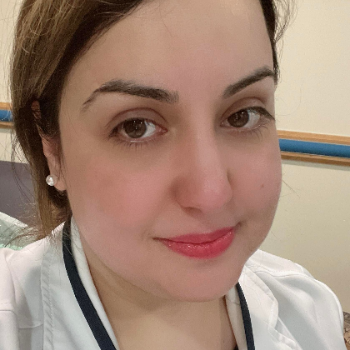
Intima Alrimawi, PhD, MSN, MPH, BSN, FAAN
Dr. Alrimawi’s research focuses on improving the quality of care for vulnerable families and children with complex health concerns or chronic diseases. Her secondary research interest is the development of nursing education to promote optimal outcomes in nursing education. In 2025, Dr. Alrimawi was inducted as a fellow of the American Academy of Nursing (AAN).

Rick García, PhD, RN, CCM, FAAOHN, FNYAM, FAADN, FAAN
Dr. García is an adjunct professor in Georgetown’s PhD in Nursing program. His career spans leadership in academia, regulation and health policy, including roles at the American Association of Colleges of Nursing, New York University and the Florida Board of Nursing. Dr. García’s work focuses on the intersection of advancing health equity, strengthening licensure integrity, and shaping nursing education policy. He co-led the first national Social Mission Metrics study of ADN programs and co-created the Falsified Identity Tracking System (FITS), which has been used by nursing boards nationwide since 2009. A fellow of multiple national organizations, Dr. García is also a published scholar and principal investigator on NIH-funded initiatives promoting diversity in biomedical research and large-scale initiatives like the NIH’s All of Us Research Program. In 2025, he was inducted as a fellow of the American Academy of Nursing (AAN).

Ella Heitzler, PhD, WHNP, FNP, RNC-OB
Dr. Heitzler’s research seeks to support healing and increase the health equity of cisgender women and transgender persons who have experienced gender-based violence. Her current work explores the sexual violence screening practices (screening rates, questions utilized to screen, barriers to screening, and facilitators of screening) of nurse practitioners, midwives, and physicians who specialize in reproductive health care. In 2025, she was named to the inaugural class of fellows of the National Association of Nurse Practitioners in Women’s Health (NPWH).
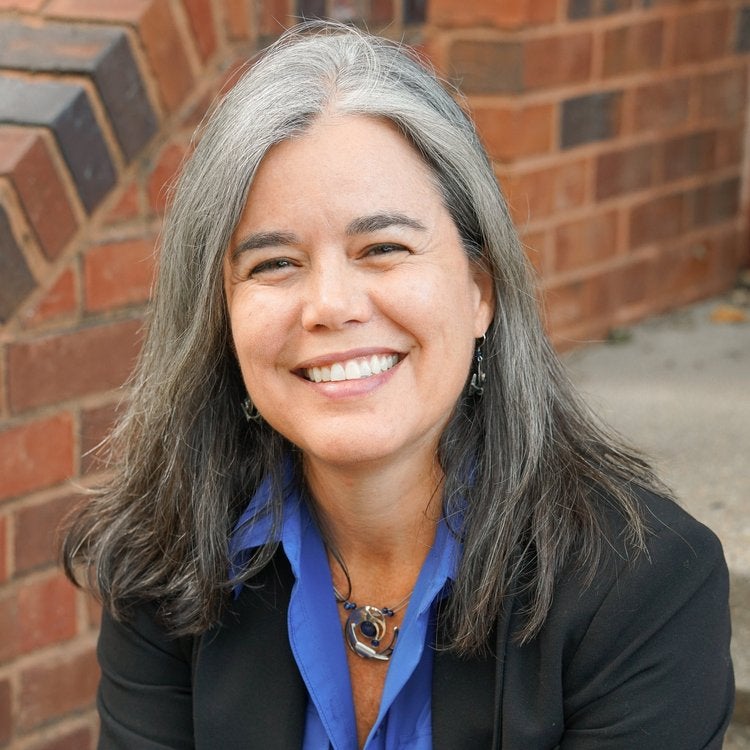
Roxanne Mirabal-Beltran, PhD
Dr. Mirabal-Beltran studies women’s health inequities and patient-provider communication. She is particularly interested in the use of Community-Based Participatory Research to facilitate access to health and health education. Her current work partners with the Wash and Spin to Health / Washington Avanzando la Salud Hispana (W.A.S.H.) Community Advisory Board to develop a reproductive health educational intervention to roll out in DC laundromats.

Liz Stokes, PhD, JD, RN
Dr. Stokes is a nurse ethicist, attorney and leader with deep expertise at the intersection of ethics, policy and health-care innovation. She holds doctoral and graduate degrees in nursing, law and bioethics, and brings a wealth of multifaceted expertise in practice, education and research. Dr. Stokes is a nationally recognized thought leader whose work spans legislative advocacy, regulatory reform, and the development of tools and training programs that advance social ethics and professional standards in health care. She has served as principal investigator and advisor on numerous policy-informed research initiatives and leads efforts to promote ethical leadership and inclusive practices across academic, clinical and governmental institutions.
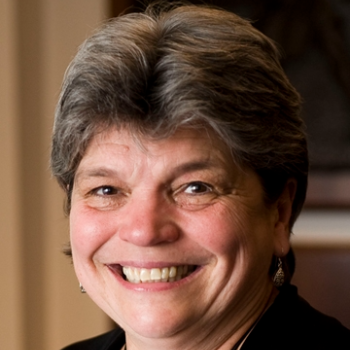
Carol Taylor, PhD, RN
Dr. Taylor’s passion is making health care “work” for everyone — equity. She studies pedagogical strategies to prepare the next generation of frontline caregivers to address ethical challenges. Her research interests include clinical and organizational ethics and spiritual care. She is the primary author of all 10 editions of WolterKluwer’s “Fundamentals of Nursing: The Art and Science of Person-Centered Care.”

Sarah Vittone, DBe, MSN, MA, RN
Dr. Vittone has more than 25 years of experience in clinical ethics consultation and is a primary consultant with the ethics consultation service of the Pellegrino Center for Clinical Bioethics. Her clinical ethics interests are in complex decision-making, surrogate decision-makers, and issues at the interface of vulnerable populations and health systems.
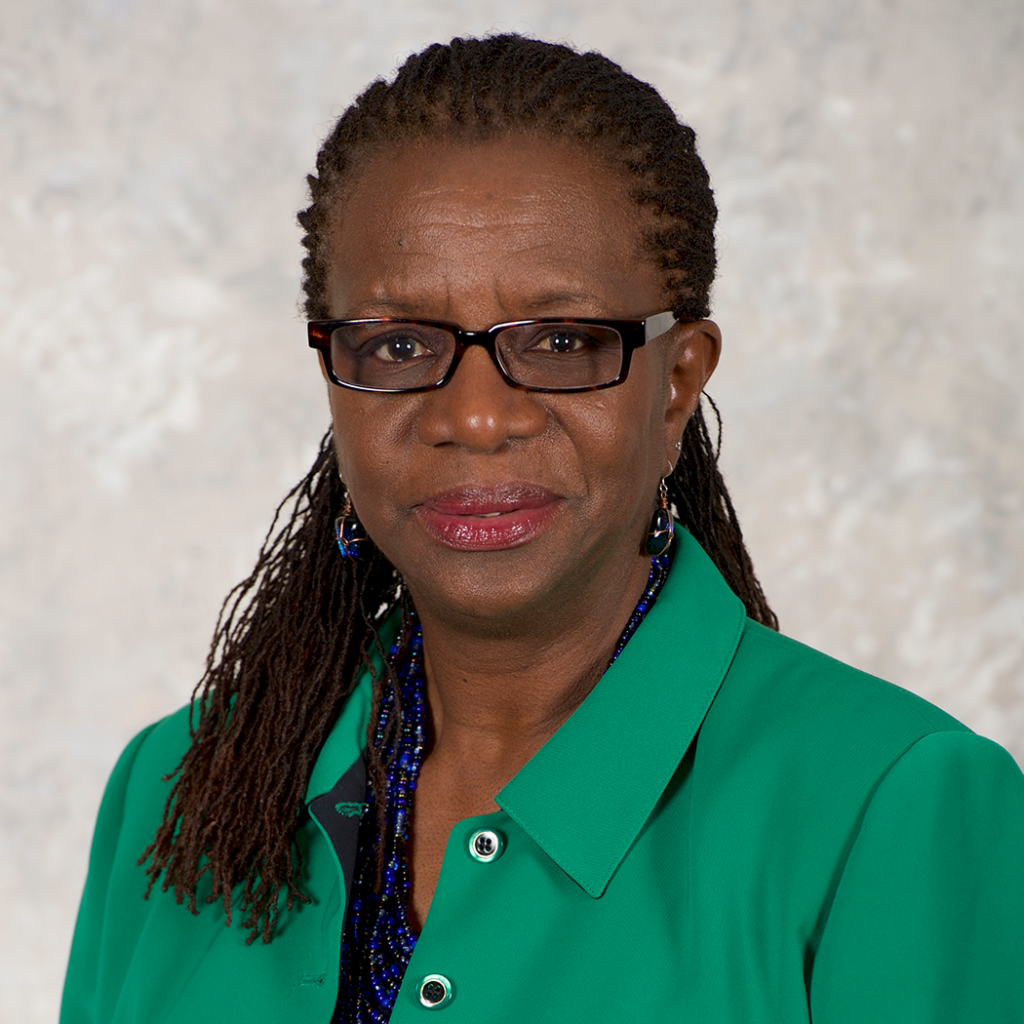
Edilma Yearwood, PhD, PMHCNS-BC, FAAN
Dr. Yearwood, a qualitative researcher, uses community-based participatory action, ethnography and grounded theory methodologies in her research grounded in promoting and advocating for health equity. Her current grant is titled “Nurturing Child Well-Being: Educating Communities on Social Determinants of Health.” The project examines family and community dynamics and social determinants (FCDSD) — all of which impact the health and well-being of children and may result in poor health outcomes.
Program News

Special Story
DNP vs. PhD: Choosing Your Path in Doctoral Nursing at Georgetown
Compare Georgetown’s PhD in Nursing and DNP. Find the doctoral path that aligns with your career goals and desired impact and learn more.
January 8, 2026

News Story
To Take the Pulse of Violent Trauma, Nurse Transfers from the Trauma Bay to the Classroom
This fall, Kenyatta Hazlewood (G’28) began her PhD in nursing to deepen her commitment to trauma prevention and intervention efforts and advance health equity through research. Her start was facilitated by the Patrick Healy Graduate Fellowship, a merit-based program that supports students who may not otherwise be able to pursue a PhD.
December 9, 2025
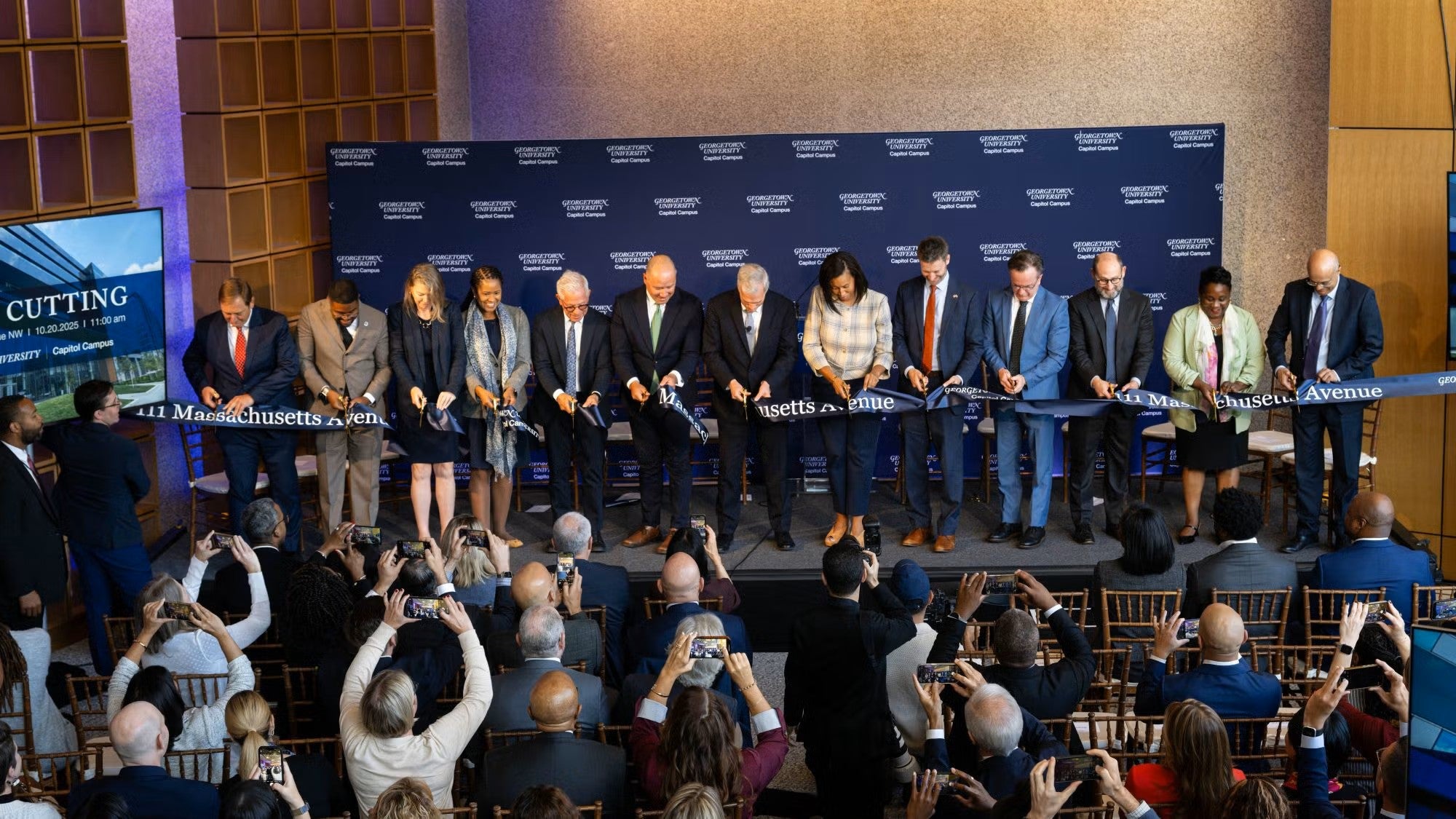
News Story
Georgetown Unveils Interdisciplinary Building in Downtown D.C.; Houses Two BSON Programs
Georgetown celebrated the opening of its new educational hub at 111 Massachusetts Ave. in downtown Washington, D.C., on the university’s Capitol Campus on Oct. 20. The new building is home to the Berkley School of Nursing’s PhD in Nursing and Doctor of Nursing Practice programs.
October 22, 2025

